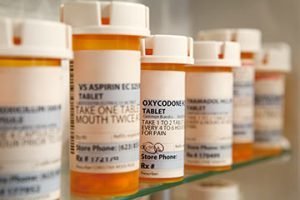
Free Consultation(203) 447-0000

Free Consultation(203) 447-0000
 A new report from the ISMP (Institute for Safe Medication Practices) shows that medication-related deaths are on the rise in the United States.
A new report from the ISMP (Institute for Safe Medication Practices) shows that medication-related deaths are on the rise in the United States.
According to the recent ISMP QuarterWatch report based on all adverse event reports submitted to the FDA in 2012, 45,421 patient deaths were linked to medications last year. To put this into perspective, last year 35,000 Americans died from auto accidents and 16,000 died from homicide.
Roughly one-third of the reported deaths have been linked to three cancer medications: Avastin, Tarceva, and Xeloda. “The underlying reason for much of the increase was a large group of patient deaths associated with three drugs for typically fatal metastatic cancers, cases in which a drug role was either not suspected or investigated,” the report states.
Experts agree that the actual number of medication-related deaths is likely significantly higher, as only 1% to 10% of medication adverse events are reported to the FDA. To many, the dramatic rise in deaths linked to medications could point out problems with the requirements for the FDA Adverse Event Reporting System (FAERS).
 Despite the increase in reported deaths, experts found that fewer doctors are reporting adverse events to the FDA and that the increase actually reflects more reports submitted by drug makers themselves. Some critics suggest that pharmaceutical companies and medical device manufacturers are more eager to report adverse events so that they can put their own “spin” on them to deflect the FDA’s blame from their products.
Despite the increase in reported deaths, experts found that fewer doctors are reporting adverse events to the FDA and that the increase actually reflects more reports submitted by drug makers themselves. Some critics suggest that pharmaceutical companies and medical device manufacturers are more eager to report adverse events so that they can put their own “spin” on them to deflect the FDA’s blame from their products.
In many cases, reports of patient deaths that come from drug makers are submitted with little to no detail, so it is unclear whether these medications were actually the cause of patient deaths. ISMP warns that this trend could lead to false numbers.
In 2012, the drugs that appeared in the most adverse event reports were the common blood thinners Pradaxa and Coumadin, which pose a high risk of internal bleeding. Fosamax, a drug designed to strengthen a patient’s bones, also figured prominently in reports.
ISMP Reports on Medication Deaths
In 2019, much of the focus on medication-related deaths has shifted toward combating the nation’s opioid epidemic and addressing the risks associated with the medical use of psychoactive drugs. Despite being widely prescribed, the dangers of codeine, fentanyl, hydrocodone, hydromorphone, and other opioid pain medications are well known, and there is significant data linking opioid prescriptions to dependence and – in far too many cases – death. In its most-recent QuarterWatch report, the ISMP also raises concern about “abuse, off-label use, and untested combination therapy” involving psychoactive medications, specifically gabapentin (Neurontin), pregabalin (Lyrica), and pimavanserin (Nuplazid).
In April 2019, the ISMP reported that Endo Pharmaceuticals recently disclosed more than 20,000 opioid-related deaths to the FDA. The company has faced a wave of lawsuits since 2011. And after reporting just 250 deaths over the previous 10 years, Endo Pharmaceuticals reported 20,115 opioid-related fatalities during the 10-month period from November 2017 to August 2018. According to a news article linked from the ISMP website:
“The thousands of deaths span roughly two decades, and entries for individual fatalities, in some cases, list more than a dozen different opioids. . . . [However, r]eports don’t necessarily mean there’s a causal link between the product and the outcome. . . . The FDA itself cautions that [its] database, known as FAERS, can reflect underreporting and overreporting of events, as well as duplicates, and incomplete information about what happened.”
The two primary drugs involved in deaths reported by Endo Pharmaceuticals are Opana and Opana ER. Opioid medications made and distributed by other companies include:
The ISMP released its latest QuarterWatch report on March 27. After noting an increase in adverse drug events over the same quarter a year prior – including nearly 10,000 events resulting in patient death – the report discusses the fatality risks associated with Neurontin and Lyrica, two drugs that provide analog or synthetic versions of gamma-aminobutyric acid (GABA), which is an amino acid that serves as a neurotransmitter. According to the ISMP, during the 12-month period ending September 30, 2018, there were “[h]undreds of reports of intentional and accidental overdose and death . . . typically involve[ing] combinations with many other potentially addictive drugs, notably opioids and anti-anxiety agents.”
The ISMP’s QuarterWatch report also discusses the high death toll linked to Nuplazid, particularly among elderly patients with dementia-related psychosis. After examining the history of the FDA’s and Acadia Pharmaceutical’s evolving risk assessments and warnings, the ISMP concludes:
“The FDA should clarify its Boxed Warning to say plainly what it apparently meant: that pimavanserin might substantially increase patient deaths as do other antipsychotics. Furthermore, it should explicitly recommend against or contraindicate combined therapy with conventional antipsychotics, given clear evidence that these antipsychotics alone double the risk of death in Parkinson’s patients.”
The Connecticut medication fatality attorneys at the national personal injury firm Berkowitz and Hanna LLC are dedicated to helping patients and families who have suffered serious injury or the wrongful death of a loved one due to medications recover full and just compensation for their damages. If you would like to learn more about plaintiffs’ rights in personal injury lawsuits, contact us today for a free legal consultation.
Berkowitz Hanna
